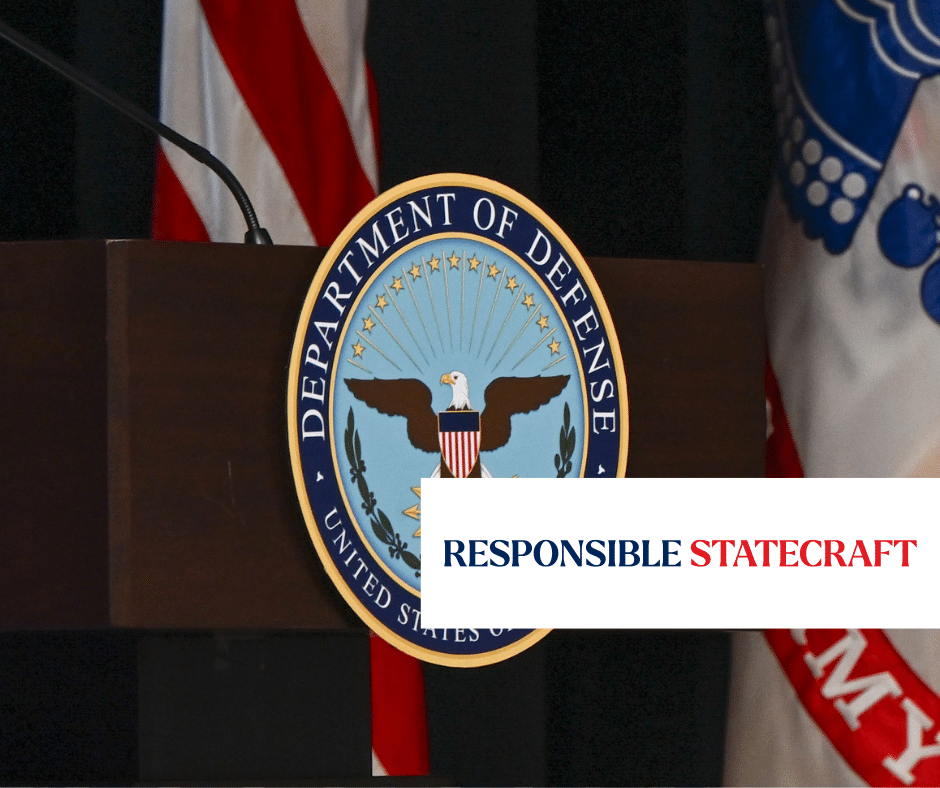All Hallows’ Eve is upon us! And 2023 has been uncommonly spooky. Disappearances. Hauntings. Bloodletting. So, if you dare look deeper – if you seek to hear more. Enter the haunted dome of Capitol Hill and come face to face with the real ghouls, monsters, and fiscal horrors that lurk in the shadows.
Transcript
Announcer:
Welcome to Budget Watchdog All Federal, the podcast dedicated to making sense of the budget, spending and tax issues facing the nation. Cut through the partisan rhetoric and talking points for the facts about what’s being talked about, bandied about and pushed to Washington. Brought to you by Taxpayers for Common Sense. And now the host of Budget Watchdog AF TCS President Steve Ellis.
Steve Ellis:
Welcome to all American taxpayers seeking common sense. You’ve made it to the spooky place. For over 25 years, TCS, that’s Taxpayers for Common Sense, has served as an independent nonpartisan budget watchdog group based in Washington DC. We believe in fiscal policy for America that is based on facts. We believe in transparency and accountability and the occasional monster. Because no matter where you are on the political spectrum, no one wants to see their tax dollars transformed into apparitions.
It’s late October and All-Hallows Eve is upon us. 2023 has been uncommonly spooky. Disappearances, hauntings, bloodletting. So if you dare look deeper, if you seek to hear more, enter the haunted dome of Capitol Hill and come face-to-face with real ghouls, monsters and fiscal horrors that lurk in the shadows. You’ll notice first the curious spectral being emitting the most light. A newborn speaker of the House, Ike Obi, Director of Digital Communications, tells us the tale of Mike Johnson.
Ike Obi:
After 22 days of an eerie absence of a speaker to lead the House of Representatives, Mike Johnson of Louisiana dawned the speaker costume. He’s only been in office since 2017, but he won unanimous support from the Republican conference. That’s after a number of candidates, four to be exact, fell. That’s Slasher movie material.
Steve Ellis:
I see ahead the ghastly outline of Frankenstein’s monster, Mike Surrusco, director of campaigns. What danger here?
Mike Surrusco:
Deep, deep in the bowels of the Capitol, the mad scientists are at work on our Pentagon budget. $800 billion stitched together into a Frankenstein’s monster. What we have been looking at at Taxpayers for Common Sense are the extra eyeballs and fingers that seem to get added on during the process, partly because of the unfunded priorities lists that the head of each military branch is required to put forward and that Congress somehow finds a way to add on to this ghastly beast.
Steve Ellis:
The fiscal bloodletting in this haunted house never subsides because it’s subsidized. Autumn Hanna, TCS Vice President, what form do the vampires take as they bleed the taxpayers dry?
Autumn Hanna:
Federal onshore oil and gas leasing policies allow private entities to siphon valuable taxpayer owned resources from federal lands without giving taxpayers a fair return. For decades, below market rates and favorable leasing terms, including outdated royalty rates, rents and minimum bids have cost taxpayers billions of dollars in potential revenue. A clove of garlic served up by the Department of Interior may reign in on some of the worst blood-sucking policies, but we haven’t hit daylight yet. Despite their massive profits, big oil and its supporters continue to bang on the door for more subsidies. Best not to invite them into the house.
Steve Ellis:
Out on the hustings under a full moon, far away from the haunted dome of Capitol Hill, werewolves prey on unsuspecting taxpayer funded programs. Tyler Work, TCS Policy Analyst, tell us about the insatiable hunger of special interests.
Tyler Work:
When the full moon of Farm Bill reauthorization rises on the horizon as it is now, special interest werewolves come hungry. For listeners who don’t know, the Farm Bill passed every five years or so is a sprawling piece of legislation with a price tag of around $1.5 trillion. That covers everything from nutrition assistance and rural broadband services to farm subsidies and trade programs. And with its reauthorization, policymakers have an opportunity to lay wasteful farm spending to rest and fashion a farm safety net that is fiscally responsible, stable and predictable. But their biggest challenge will be fighting off certain large agribusinesses that exploit federal subsidies at the expense of family and beginning farmers.
Steve Ellis:
The pedestrian ghosts can be easy to miss in a house of horrors, but these bad boys are there. Gabby Sanchez, TCS Executive Assistant and Operations Coordinator. How do legacy systems haunt the federal budget?
Gaby Sanchez:
Legacy systems like the literal combat ships and the KC 135 R tanker continue to linger in defense appropriations well after they should have passed. Military service chiefs are prepared to phase out these programs, but localized interest in Congress maintain their existence by legislatively requiring the Pentagon to either undertake or refrain from a specific actions such as not decommissioning certain ships. Until Congress ceases to prioritize political agendas or the Pentagon’s military strategy, this legacy system ghost will persist in hunting both the budget and our national security.
Steve Ellis:
Out of the west, the wicked witch rides with a brew so potent and so green, it bewitches all who taste even a drop of its empty promises. Sheila Korth, TCS Senior Policy Analyst, what makes up this witch’s brew?
Sheila Korth:
Green, some say, but watch out for the wicked eye. The offer to brew fuel from non-food sources has bewitched lawmakers on both sides of the aisle. Advanced cellulose or whatchamacallit biofuels derived from non-food sources like cornstalks and switchgrass were meant to decrease our country’s reliance on fossil fuels and cut greenhouse gas emissions. But despite simmering for decades, these fuels went up in smoke. Instead, soybean oil, liquid corn and sugarcoated subsidies were churned together fashioning one very expensive recipe for disaster. Congress recently swallowed another drop of these empty promises. Axing the taxpayer subsidies from this potion would break the spell.
Steve Ellis:
The take of a creature so gruesome as the blob can only come from a firsthand source. And so we turn to the scarecrow, a fixture in the farmlands of America. Mr. Agriculture, Josh Sewell, TCS Director of Policy and research. What do you see of the blob through your agriculture eyes?
Josh Sewell:
Crop insurance, ad hoc disaster aid, farm income entitlement programs, government enforced minimum crop prices and other FedEx subsidies all add to the growing blob of the farm safety net. Yet lobbyists continue to call for higher levels of farm subsidies in the next Farm Bill. Despite agriculture coming off a year of record high farm income, farmers and taxpayers agree: eliminating unnecessary subsidies can save taxpayers money while also benefiting rural communities and beginning farmers. Crafting a fiscally responsible Farm Bill can stem the growing blob of ag spending while also supporting the farmers who need the most help, building long-term economic and climate resilience.
Steve Ellis:
The siren call of doom and devastation always sounds like music to the ear of its victim, enticing even the most wary traveler to gamble everything and find themselves lead astray. Mia Huang, TCS Policy Analyst, what siren songs can you hear right now?
Mia Huang:
Right now seems like the idea of capturing carbon dioxide to prevent it from entering the atmosphere is this siren call that’s just irresistibly tempting to lawmakers. However, as we pour billions of dollars into carbon capture and sequestration or CCS, these subsidies could be steering us further away from our climate goals because CCS is not economically viable and its only commercial use for now is to inject the capture carbon into depleted oil and gas wells to produce more oil, which leads to more downstream emissions. More importantly, CCS sublease are prone to fraud and abuse. A treasury inspector general audit found that close to $900 million claimed in carbon sequestration tax credits did not comply with EPA requirements. This raises serious accountability and transparency concerns in our federal CCS spending. What we should do is turn a deaf year whenever big oil tries to tout CCS as their pathway to net-zero so we can avoid the siren song that could lead us aray.
Steve Ellis:
The undead are the stuff of horror legend, materializing from nothing, persisting forever, unkillable. Gabe Murphy, TCS Policy Analyst, what zombies walk the haunted halls of Congress in the night?
Gabe Murphy:
In the Defense Appropriations Bill, House appropriators added 150 million for the Adaptive Engine Transition Program or AETP. The program that the Pentagon zeroed out in its budget request potentially reanimating the F-35 alternate engine program that died a decade ago. The funding appears to be a result of a lobbying push by General Electric to fund the alternate engine despite its far higher price tag than the engine upgrade Pratt and Whitney is proposing. While Congress stopped short of funding procurement for this alternative engine program, these added funds for research development testing and evaluation could mean that despite their zombie-like appearance, future proposals for an F-35 alternate engine aren’t necessarily dead on arrival.
Steve Ellis:
Flooding is nature and the forces of nature are powerful. Chris Howe-Smith, TCS Research Associate, describe if you will, the fiscal folly of the Yazoo Pumps.
Chris Howe-Smith:
Like the creature from the black lagoon, the Yazoo Pumps seem to be once again emerging from the bayou. We thought this project had disappeared into the muck 15 years ago when the Bush administration’s EPA vetoed the project because of the environmental degradation it would cause. That was a decision EPA reiterated in 2021, but yet the core of engineers and Mississippi Delta landowners are still trying to resurrect this flood control boondoggle. This project cost upwards of $440 million and would just increase the federally subsidized production on marginal agricultural lands.
Steve Ellis:
Well, there you have it listeners. The spooky view of what awaits. From the whole TCS team, happy Halloween. This is the frequency. Mark it on your dial. Subscribe and share and know this: Taxpayers for Common Sense has your back, America. We read the bills, monitor the earmarks, and highlight those wasteful programs that poorly spent our money and shift long-term risk to taxpayers. We’ll be back with a new episode and I hope you’ll meet us right here.










